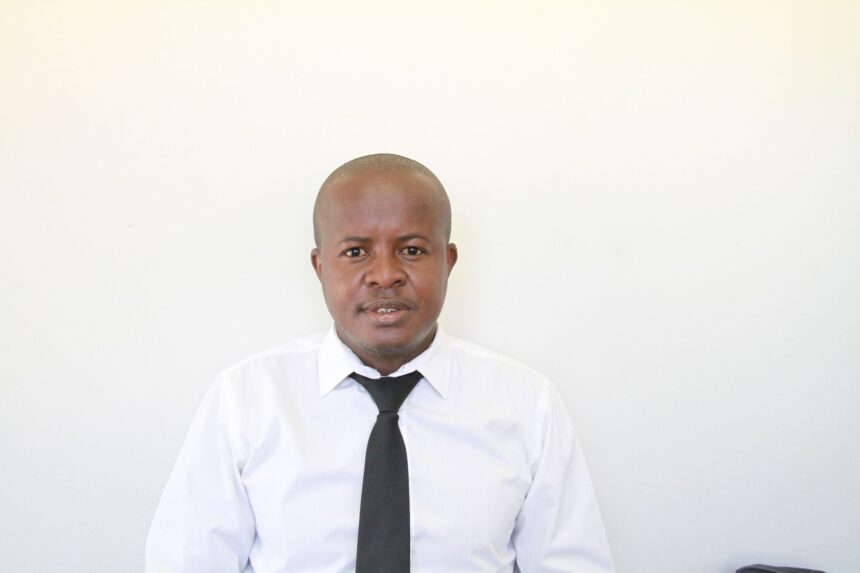Recent media revelations have brought to the fore the persistent and egregious discrimination faced by persons with disabilities in the Republic of Namibia. It is essential to confront the harsh reality that no individual elects to live with a disability; rather, disabilities typically result from unpredictable events such as accidents, diseases, or congenital conditions that impair mobility, sensory perception, or cognitive functions.
In light of this, Namibia’s obligations under international and domestic laws mandate unequivocal action to protect and promote the dignity, rights, and freedoms of persons with disabilities.
At the international level, Namibia is a signatory to the United Nations Convention on the Rights of Persons with Disabilities (CRPD), ratified in 2007, which serves as the foundational legal instrument enshrining the principles of equality, non-discrimination, and full participation of persons with disabilities in society.
This convention is complemented by various international human rights instruments, including the Universal Declaration of Human Rights (UDHR) and the International Covenant on Economic, Social and Cultural Rights (ICESCR), both of which emphasise the inherent dignity and equality of all individuals, regardless of physical or mental ability.
Domestically, Namibia has enacted legislation aimed at aligning with these international obligations. The National Disability Council Act, 2004 (Act No. 26 of 2004), establishes a legal framework designed to advocate and oversee the rights and welfare of persons with disabilities. Furthermore, the Labour Act, 2007 (Act No. 11 of 2007), unequivocally prohibits any form of discrimination in employment based on physical or mental disability, thus reinforcing the fundamental right to work as enshrined in Article 6 of the ICESCR and Article 10 of the Namibian Constitution, which protects against discriminatory practices in all spheres of life.
However, the chasm between legal frameworks and their practical implementation remains vast. Despite the prohibitions laid out in the Labour Act, persons with disabilities continue to face pervasive barriers to employment, from overt discrimination to systemic inaccessibility in workplaces.
The Namibian government, in its attempt to alleviate these challenges, provides a disability grant of
N$1 600 per month. While this grant is intended to cover basic medical needs and daily living expenses, the rising costs of healthcare and essential services render this amount grossly inadequate. This insufficiency violates Namibia’s commitments under the CRPD, which mandates that states ensure persons with disabilities enjoy an adequate standard of living and social protection.
Barriers
Furthermore, while Namibia has instituted educational grants for students with disabilities to ensure equitable access to education, bureaucratic inefficiencies and delays in disbursement often derail the academic pursuits of many of these students.
This failure to provide timely financial support infringes upon their right to education, as enshrined in Article 13 of the International Covenant on Economic, Social and Cultural Rights (ICESCR), and perpetuates their marginalisation in society.
Namibia must take immediate measures to rectify these failures, ensuring financial support mechanisms are not only accessible but also efficient and sufficient to meet the unique needs of persons with disabilities.
The failure to celebrate and honour the achievements of Namibian athletes with disabilities on the international stage further exemplifies this systemic disregard. Lahja Ishitile, a gold medallist who has brought international recognition to Namibia, returned to her home country only to be met with neglect and indifference, rather than the national pride and accolades such an accomplishment deserves. This reflects a broader societal failure to value the contributions of persons with disabilities, even when they elevate the nation’s standing on the global platform.
Political participation
The recent remarks by the minister responsible for disability affairs, advocating the inclusion of persons with disabilities in political parties to ensure the availability of sign language interpretation, is a step forward.
However, it raises the question of whether political parties genuinely aim to promote the rights of persons with disabilities or if they are merely leveraging their status to gain electoral support. Political promises, such as increasing disability grants to
N$3 000, often remain unfulfilled, even by those already in power, casting doubt on the sincerity of these commitments.
Moreover, the Employment Equity Commission of Namibia has implemented a policy requiring businesses applying for government tenders to demonstrate that they employ persons with disabilities. This policy is well within the bounds of legality, as underscored by the principles of affirmative action and non-discrimination embedded in Namibian law, including the Affirmative Action (Employment) Act, 1998 (Act No. 29 of 1998). Nevertheless, the reality remains that many law firms and corporate entities fail to employ persons with disabilities, despite their obligations under this legal framework.
This disregard violates not only national law but also international human rights standards, particularly the CRPD’s mandate to promote employment opportunities for persons with disabilities in both public and private sectors.
It is imperative that Namibian society, and the international community at large recognise that persons with disabilities are being systematically marginalised and disregarded. The path forward requires not only the enactment of robust legal protections but, more importantly, their effective implementation.
Namibian institutions must take concrete steps to bridge the gap between law and practice, ensuring that persons with disabilities are not merely subjects of political rhetoric but active participants in the nation’s socio-economic development.
In conclusion, while Namibia has made some strides in aligning its national legislation with international conventions, much remains to be done to ensure the full realisation of the rights of persons with disabilities. The government must prioritise the effective enforcement of its disability-related policies, increase financial support, and foster an inclusive environment where persons with disabilities can thrive in all aspects of life, be it employment, education, or sports. Only then can Namibia truly claim to uphold the principles of equity and non-discrimination embedded in its Constitution and international legal obligations.
*Brian Ngutjinazo is a human rights activist and LLB student at the University of Namibia.



